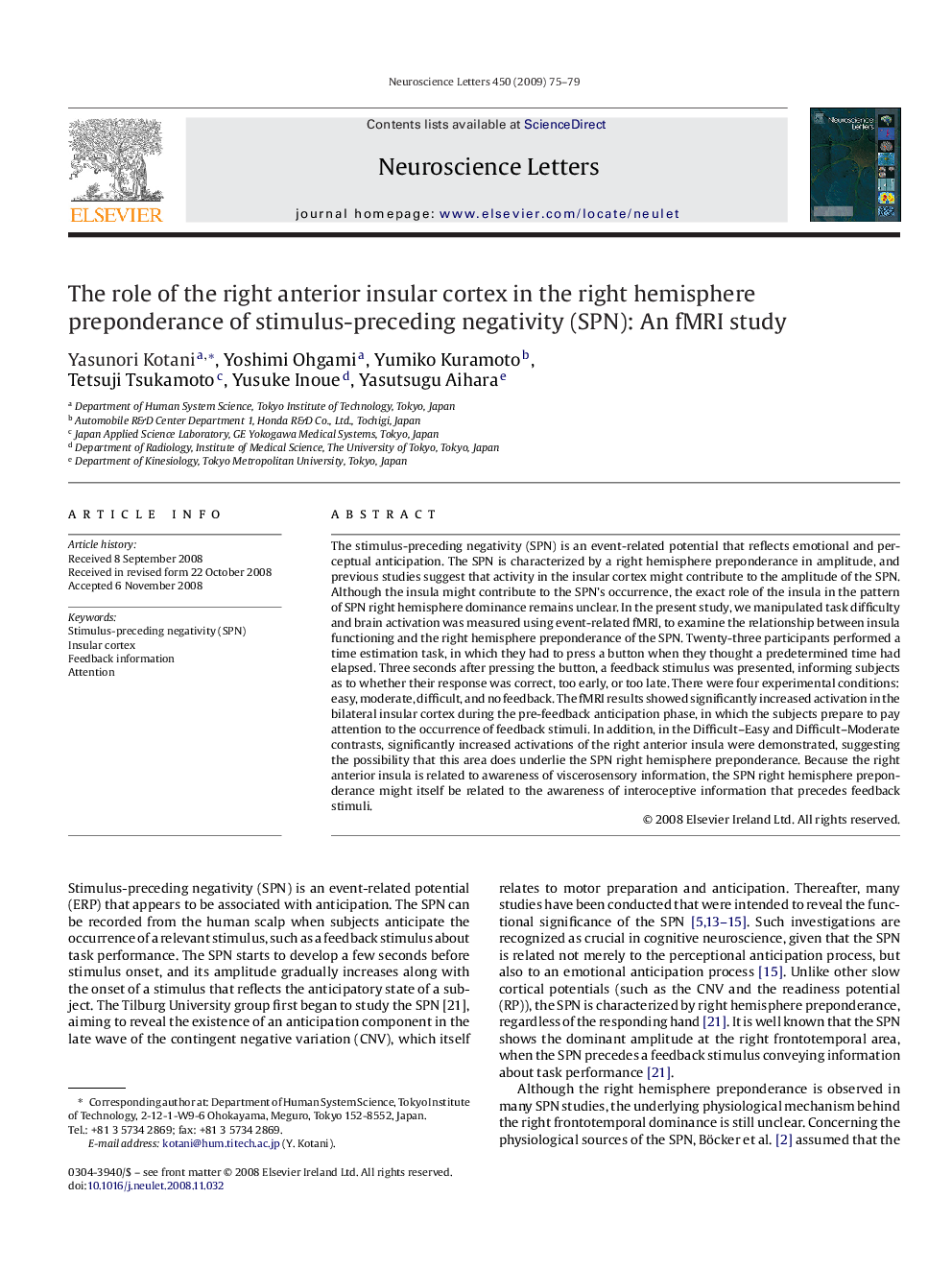| Article ID | Journal | Published Year | Pages | File Type |
|---|---|---|---|---|
| 4347609 | Neuroscience Letters | 2009 | 5 Pages |
Abstract
The stimulus-preceding negativity (SPN) is an event-related potential that reflects emotional and perceptual anticipation. The SPN is characterized by a right hemisphere preponderance in amplitude, and previous studies suggest that activity in the insular cortex might contribute to the amplitude of the SPN. Although the insula might contribute to the SPN's occurrence, the exact role of the insula in the pattern of SPN right hemisphere dominance remains unclear. In the present study, we manipulated task difficulty and brain activation was measured using event-related fMRI, to examine the relationship between insula functioning and the right hemisphere preponderance of the SPN. Twenty-three participants performed a time estimation task, in which they had to press a button when they thought a predetermined time had elapsed. Three seconds after pressing the button, a feedback stimulus was presented, informing subjects as to whether their response was correct, too early, or too late. There were four experimental conditions: easy, moderate, difficult, and no feedback. The fMRI results showed significantly increased activation in the bilateral insular cortex during the pre-feedback anticipation phase, in which the subjects prepare to pay attention to the occurrence of feedback stimuli. In addition, in the Difficult-Easy and Difficult-Moderate contrasts, significantly increased activations of the right anterior insula were demonstrated, suggesting the possibility that this area does underlie the SPN right hemisphere preponderance. Because the right anterior insula is related to awareness of viscerosensory information, the SPN right hemisphere preponderance might itself be related to the awareness of interoceptive information that precedes feedback stimuli.
Related Topics
Life Sciences
Neuroscience
Neuroscience (General)
Authors
Yasunori Kotani, Yoshimi Ohgami, Yumiko Kuramoto, Tetsuji Tsukamoto, Yusuke Inoue, Yasutsugu Aihara,
